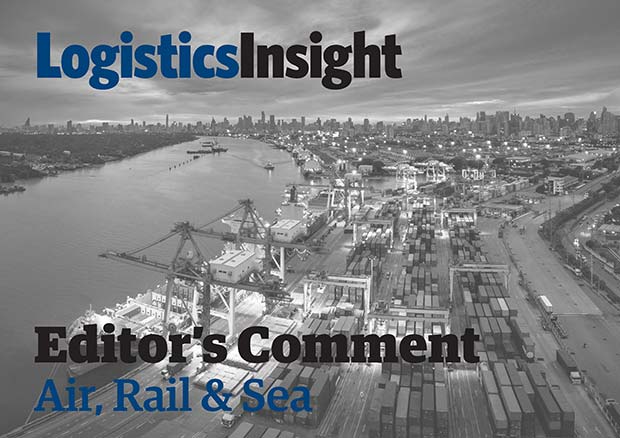Global trade is reliant on a network of air, rail and sea links. Over the past year, with Covid-19 threatening economies across the globe, it has been crucial for air, rail and sea networks to be maintained to prevent economic disaster. The safety of all those working in the transport industry has had to be upheld so that goods can continue to reach consumers. Now that the end of the Brexit transition period has passed, we wait to see how smooth and speedy will be the movement of goods across the UK’s borders in the months ahead.
This article was first published in the January 2021 issue of Logistics Insight, subscribe to the magazine by clicking here.
 The British Ports Association (BPA), which represents 86% of UK port freight activities around the UK, sees the UK’s new trading relationship with the EU bedding in and the mass roll-out of the coronavirus vaccine beginning. Commenting on the year ahead, the BPA’s Chief Executive, Richard Ballantyne, said: “Despite the obvious changes for those operators handling EU freight, 2021 could see a bounce back from the various impacts that affected the UK and global economy last year. In the short term, keeping the industry resilient and ports open could mean getting essential workers at ports up the queue just behind health workers, the clinically vulnerable and the elderly, in terms of the roll-out of the Covid-19 vaccine.”
The British Ports Association (BPA), which represents 86% of UK port freight activities around the UK, sees the UK’s new trading relationship with the EU bedding in and the mass roll-out of the coronavirus vaccine beginning. Commenting on the year ahead, the BPA’s Chief Executive, Richard Ballantyne, said: “Despite the obvious changes for those operators handling EU freight, 2021 could see a bounce back from the various impacts that affected the UK and global economy last year. In the short term, keeping the industry resilient and ports open could mean getting essential workers at ports up the queue just behind health workers, the clinically vulnerable and the elderly, in terms of the roll-out of the Covid-19 vaccine.”
PD Ports has launched its ‘Future Teesport’ vision – outlining how it plans to elevate the River Tees to become the UK’s most successful port region by 2050. As Statutory Harbour Authority for the River Tees, PD Ports is committed to delivering a strong and sustainable future for the river, driving economic growth and job creation across the Tees Valley region and the UK as a whole. Together with its customers, Teesport contributes £1.4 billion to the economy annually, accounting for around 10% of GVA in the Tees Valley and supporting 22,000 jobs.
The Rail Supply Group (RSG) – the leadership body for the UK rail supply chain – has provided an update on its three Act Now priorities which will support the rail supply chain’s COVID-19 recovery. In July last year, having been invited by Government to form a Coronavirus Taskforce, the RSG published its Act Now report following a comprehensive independent survey into the impact of coronavirus on businesses supplying the rail industry. Three priorities were identified – which will also see elements of the Rail Sector Deal being adapted and accelerated in response to these industry needs – with significant progress being made over the last four months: improve work pipeline visibility; simplify data access; and change railway access arrangements.
A new edition of the British International Freight Association’s (BIFA) Standard Trading Conditions (STC) has been launched, replacing the previous version revised in 2017. The latest edition has been produced as a consequence of the UK’s exit from the EU and reflects changes to Direct/Indirect Representation with HMRC.
We applaud the air, rail and sea sectors for continuing to keep goods moving during the most trying of times.
George Simpson
Features Editor




Comments are closed.